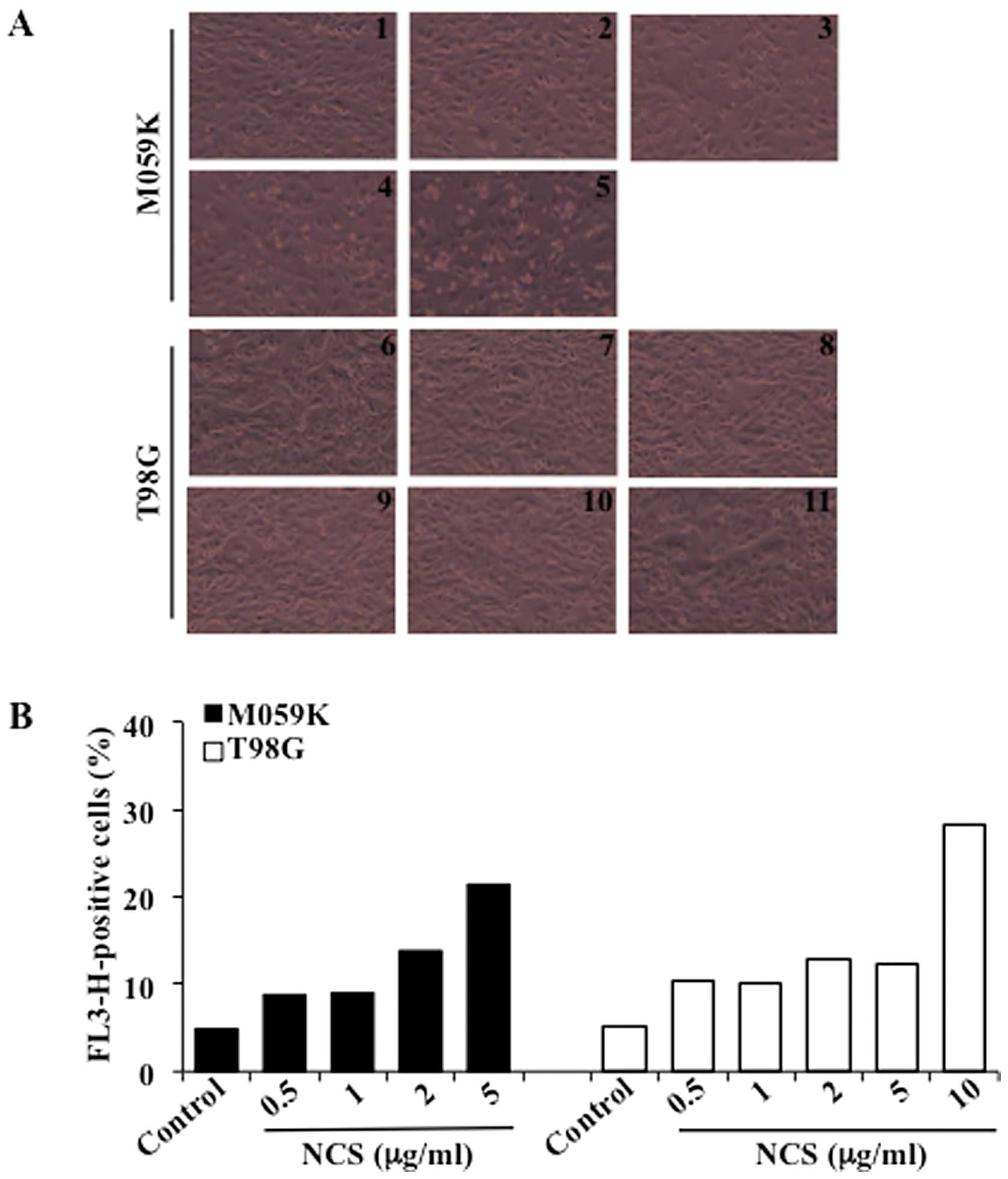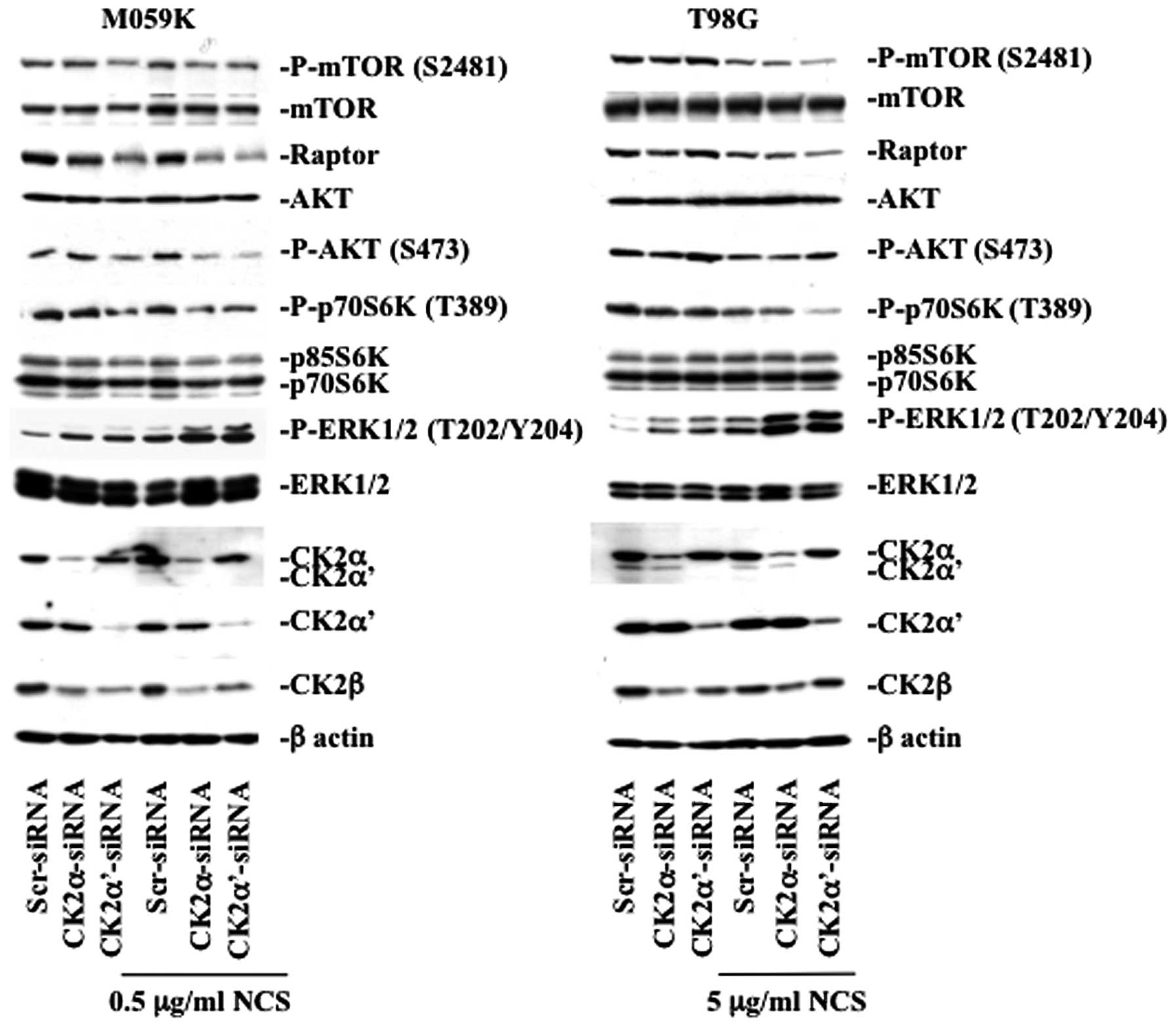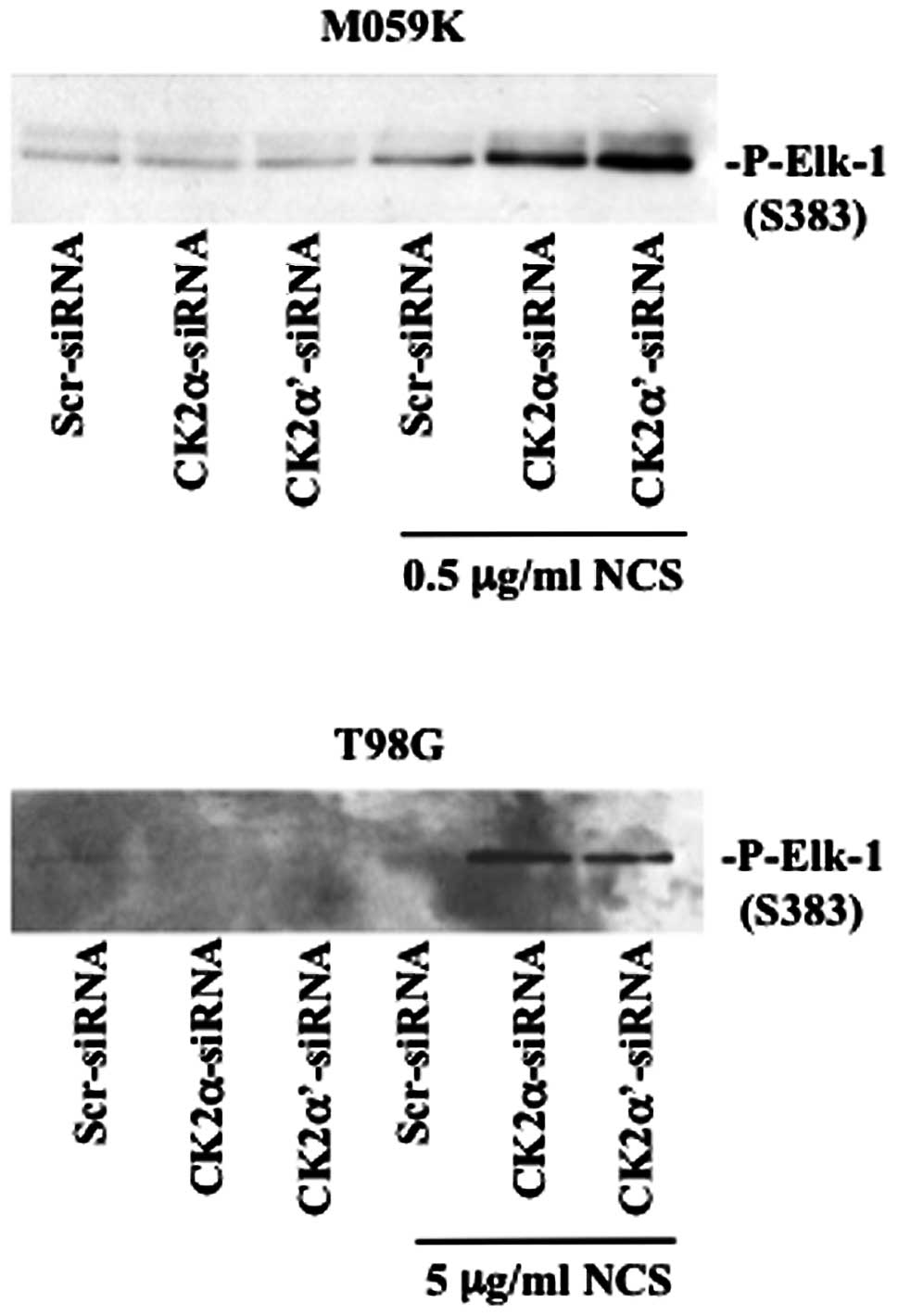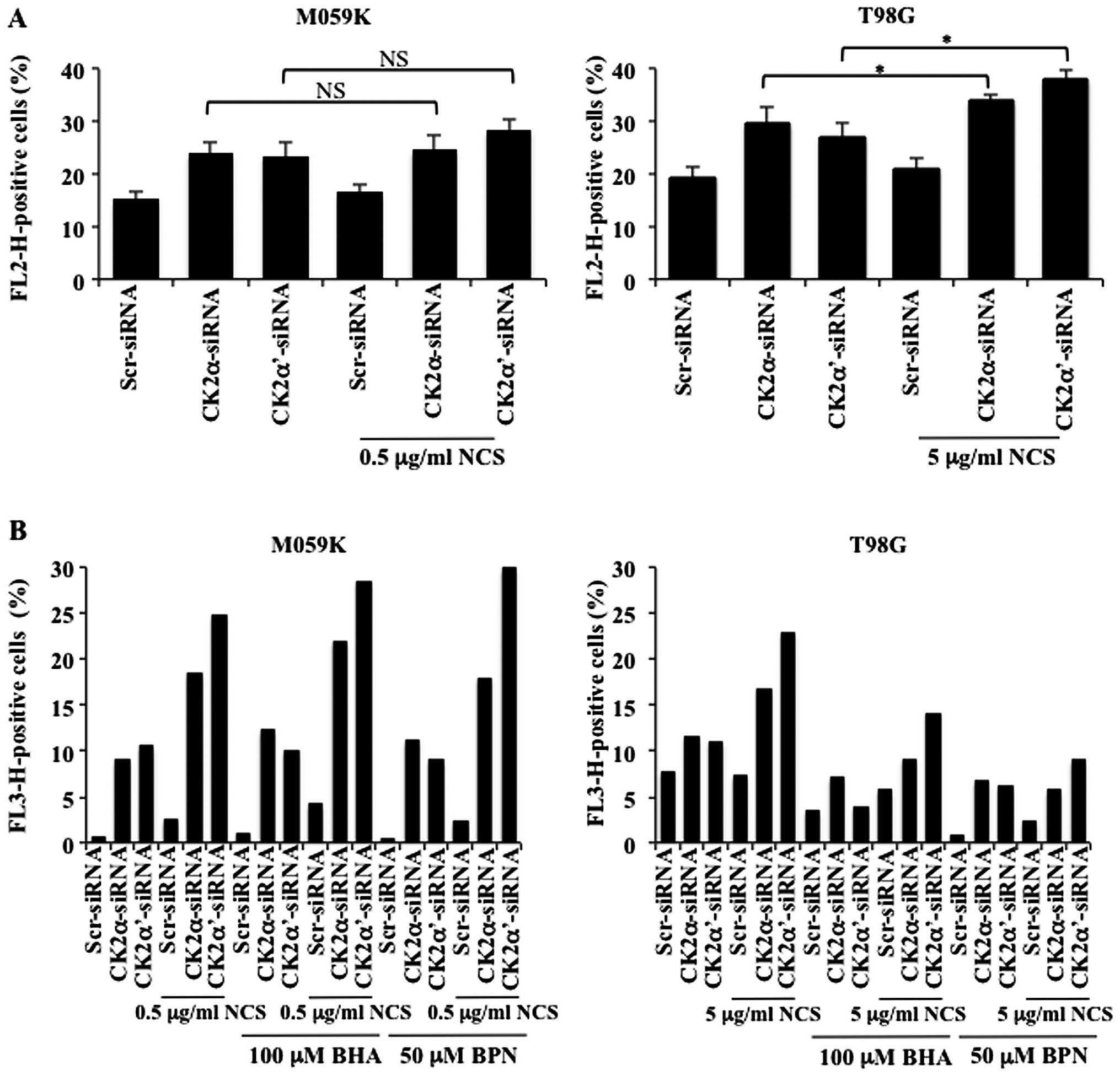|
1.
|
DN LouisH OhgakiOD WiestlerWK CaveneePC
BurgerA JouvetBW ScheithauerP KleihuesThe 2007 WHO classification
of tumours of the central nervous systemActa
Neuropathol11497109200710.1007/s00401-007-0243-417618441
|
|
2.
|
M VerheijH BartelinkRadiation-induced
apoptosisCell Tissue Res301133142200010.1007/s004410000188
|
|
3.
|
F LefrancJ BrotchiR KissPossible future
issues in the treatment of glioblastomas: special emphasis on cell
migration and the resistance of migrating glioblastoma cells to
apoptosisJ Clin
Oncol2324112422200510.1200/JCO.2005.03.08915800333
|
|
4.
|
GC SmithSP JacksonThe DNA-dependent
protein kinaseGenes Dev13916934199910.1101/gad.13.8.91610215620
|
|
5.
|
W ZhuangZ QinZ LiangThe role of autophagy
in sensitizing malignant glioma cells to radiation therapyActa
Biochim Biophys Sin
(Shanghai)41341351200910.1093/abbs/gmp02819430698
|
|
6.
|
CW WangDJ KlionskyThe molecular mechanism
of autophagyMol Med965762003
|
|
7.
|
EL EskelinenMaturation of autophagic
vacuoles in Mammalian
cellsAutophagy1110200510.4161/auto.1.1.127016874026
|
|
8.
|
S PaglinT HollisterT DeloheryN HackettM
McMahillE SphicasD DomingoJ YahalomA novel response of cancer cells
to radiation involves autophagy and formation of acidic
vesiclesCancer Res61439444200111212227
|
|
9.
|
KC YaoT KomataY KondoT KanzawaS KondoIM
GermanoMolecular response of human glioblastoma multiforme cells to
ionizing radiation: cell cycle arrest, modulation of the expression
of cyclin-dependent kinase inhibitors, and autophagyJ
Neurosurg98378384200310.3171/jns.2003.98.2.0378
|
|
10.
|
BB OlsenOG IssingerB GuerraRegulation of
DNA-dependent protein kinase by protein kinase CK2 in human
glioblastoma
cellsOncogene2960166026201010.1038/onc.2010.33720711232
|
|
11.
|
B GuerraOG IssingerProtein kinase CK2 in
human diseasesCurr Med
Chem1518701886200810.2174/09298670878513293318691045
|
|
12.
|
NA St-DenisDW LitchfieldProtein kinase CK2
in health and disease: from birth to death: the role of protein
kinase CK2 in the regulation of cell proliferation and survivalCell
Mol Life Sci6618171829200910.1007/s00018-009-9150-219387552
|
|
13.
|
GM UngerAT DavisJW SlatonK AhmedProtein
kinase CK2 as regulator of cell survival: implications for cancer
therapyCurr Cancer Drug
Targets47784200410.2174/156800904348168714965269
|
|
14.
|
BB OlsenB GuerraAbility of CK2beta to
selectively regulate cellular protein kinasesMol Cell
Biochem316115126200810.1007/s11010-008-9817-218560763
|
|
15.
|
LF PovirkDNA damage and mutagenesis by
radiomimetic DNA-cleaving agents: bleomycin, neocarzinostatin and
other enediynesMutat
Res3557189199610.1016/0027-5107(96)00023-18781578
|
|
16.
|
F TraganosZ DarzynkiewiczLysosomal proton
pump activity: supravital cell staining with acridine orange
differentiates leukocyte subpopulationsMethods Cell
Biol41185194199410.1016/S0091-679X(08)61717-37532261
|
|
17.
|
A IwamaruY KondoE IwadoH AokiK FujiwaraT
YokoyamaGB MillsS KondoSilencing mammalian target of rapamycin
signaling by small interfering RNA enhances rapamycin-induced
autophagy in malignant glioma
cellsOncogene2618401851200710.1038/sj.onc.120999217001313
|
|
18.
|
A YamamotoY TagawaT YoshimoriY MoriyamaR
MasakiY TashiroBafilomycin A1 prevents maturation of autophagic
vacuoles by inhibiting fusion between autophagosomes and lysosomes
in rat hepatoma cell line, H-4-II-E cellsCell Struct
Funct233342199810.1247/csf.23.33
|
|
19.
|
D HanahanRA WeinbergThe hallmarks of
cancerCell1005770200010.1016/S0092-8674(00)81683-9
|
|
20.
|
CH JungS-H RoJ CaoNM OttoD-H KimmTOR
regulation of autophagyFEBS
Lett58412871295201010.1016/j.febslet.2010.01.01720083114
|
|
21.
|
EA CorcelleP PuustinenM JäätteläApoptosis
and autophagy: targeting autophagy signalling in cancer cells
-‘trick or treats’FEBS J276608460962009
|
|
22.
|
RT PetersonPA BealMJ CombSL
SchreiberFKBP12-rapamycin-associated protein (FRAP)
autophosphorylates at serine 2481 under translationally repressive
conditionsJ Biol
Chem27574167423200010.1074/jbc.275.10.741610702316
|
|
23.
|
J HuangS WuC-L WuBD ManningSignaling
events downstream of mammalian target of rapamycin complex 2 are
attenuated in cells and tumors deficient for the tuberous sclerosis
complex tumor suppressorsCancer
Res6961076114200910.1158/0008-5472.CAN-09-0975
|
|
24.
|
U SivaprasadA BasuInhibition of ERK
attenuates autophagy and potentiates tumour necrosis
factor-alpha-induced cell death in MCF-7 cellsJ Cell Mol
Med1212651271200810.1111/j.1582-4934.2008.00282.x18266953
|
|
25.
|
CS HillR MaraisS JohnJ WynneS DaltonR
TreismanFunctional analysis of a growth factor-responsive
transcription factor
complexCell73395406199310.1016/0092-8674(93)90238-L8477450
|
|
26.
|
X WangGP StudzinskiPhosphorylation of
raf-1 by kinase suppressor of ras is inhibited by ‘MEK-specific’
inhibitors PD 098059 and U0126 in differentiating HL60 cellsExp
Cell Res2682943002001
|
|
27.
|
B RavikumarS SarkarJE DaviesM FutterM
Garcia-ArencibiaZW Green-ThompsonM Jimenez-SanchezVI KorolchukM
LichtenbergS LuoDC MasseyFM MenziesK MoreauU NarayananM RennaFH
SiddiqiBR UnderwoodAR WinslowDC RubinszteinRegulation of mammalian
autophagy in physiology and pathophysiologyPhysiol
Rev9013831435201010.1152/physrev.00030.200920959619
|
|
28.
|
RK DagdaJ ZhuSM KulichCT
ChuMitochondrially localized ERK2 regulates mitophagy and
autophagic cell stress: implications for Parkinson’s
diseaseAutophagy4770782200818594198
|
|
29.
|
Y ChenMB AzadSB GibsonSuperoxide is the
major reactive oxygen species regulating autophagyCell Death
Differ1610401052200910.1038/cdd.2009.4919407826
|
|
30.
|
F Nicolau-GalmésA AsumendiE
Alonso-TejerinaG Pérez-YarzaS-M JangiJ GardeazabalY
Arroyo-BerdugoJM CareagaJL Díaz-RamónA ApraizMD BoyanoTerfenadine
induces apoptosis and autophagy in melanoma cells through
ROS-dependent and -independent
mechanismsApoptosis1612531267201121861192
|
|
31.
|
S HuangPJ HoughtonTargeting mTOR signaling
for cancer therapyCurr Opin
Pharmacol3371377200310.1016/S1471-4892(03)00071-7
|
|
32.
|
WK WuCW LeeCH ChoFK ChanJ YuJJ SungRNA
interference targeting raptor inhibits proliferation of gastric
cancer cellsExp Cell
Res31713531358201110.1016/j.yexcr.2011.03.00521396933
|
|
33.
|
GA SolimanHA Acosta-JaquezEA DunlopB
EkimNE MajAR TeeDC FingarmTOR Ser-2481 autophosphorylation monitors
mTORC-specific catalytic activity and clarifies rapamycin mechanism
of actionJ Biol
Chem28578667879201010.1074/jbc.M109.09622220022946
|
|
34.
|
M BreuleuxM KlopfensteinC StephanCA
DoughtyL BarysSM MairaD KwiatkowskiHA LaneIncreased AKT S473
phosphorylation after mTORC1 inhibition is rictor dependent and
does not predict tumor cell response to PI3K/mTOR inhibitionMol
Cancer Ther8742753200910.1158/1535-7163.MCT-08-066819372546
|
|
35.
|
G Di MairaM SalviG ArrigoniO MarinS SarnoF
BrustolonLA PinnaM RuzzeneProtein kinase CK2 phosphorylates and
upregulates Akt/PKBCell Death Differ12668677200515818404
|
|
36.
|
JN KreutzerM RuzzeneB GuerraEnhancing
chemosensitivity to gemcitabine via RNA interference targeting the
catalytic subunits of protein kinase CK2 in human pancreatic cancer
cellsBMC Cancer10440452201010.1186/1471-2407-10-44020718998
|
|
37.
|
E Ogier-DenisS PattingreJ Benna ElP
CodognoErk1/2-dependent phosphorylation of Galpha-interacting
protein stimulates its GTPase accelerating activity and autophagy
in human colon cancer cellsJ Biol
Chem2753909039095200010.1074/jbc.M006198200
|
|
38.
|
AA EllingtonMA BerhowKW
SingletaryInhibition of Akt signaling and enhanced ERK1/2 activity
are involved in induction of macroautophagy by triterpenoid B-group
soyasaponins in colon cancer
cellsCarcinogenesis27298306200610.1093/carcin/bgi21416113053
|
|
39.
|
Y ChengF QiuSI TashiroS OnoderaT
IkejimaERK and JNK mediate TNFalpha-induced p53 activation in
apoptotic and autophagic L929 cell deathBiochem Biophys Res
Commun376483488200810.1016/j.bbrc.2008.09.01818796294
|
|
40.
|
S CagnolJ-C ChambardERK and cell death:
mechanisms of ERK-induced cell death - apoptosis, autophagy and
senescenceFEBS
J277221200810.1111/j.1742-4658.2009.07366.x19843174
|
|
41.
|
P SzyniarowskiE Corcelle-TermeauT FarkasM
Høyer-HansenJ NylandstedT KallunkiM JaattelaA comprehensive siRNA
screen for kinases that suppress macro-autophagy in optimal growth
conditionsAutophagy7112201110.4161/auto.7.8.1577021508686
|





















